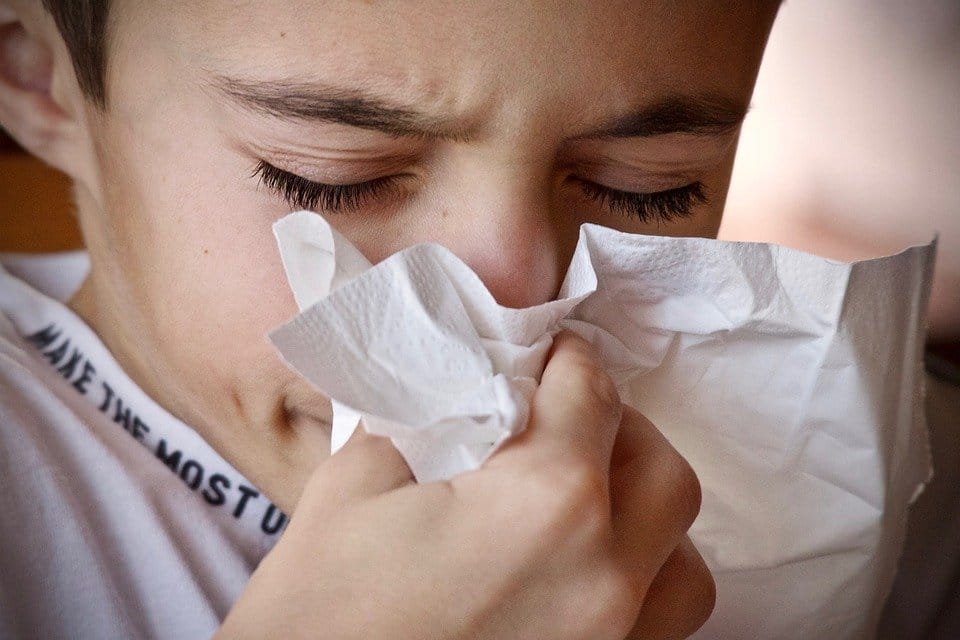It is a common belief that when you sneeze, the heart stops and then restarts. We decided to check whether this vital organ really behaves this way during sneezing.
The popularity of this opinion is evidenced by the fact that Russian-language Google, when querying in anonymous mode, highlighted description (a succinct answer to the question asked) issues such statement: “In addition, the heart stops briefly during certain physiological processes, such as when we sneeze.” In addition, many users are interested in the question: on “Answers.Mail.ru», on the resource "Rambler / Doctor», as well as bloggers "Zena». Websites dedicated to the interpretation of the fundamentals of Islam, tie up with the heart stopping and the traditional formula that a believer must say after sneezing: “Alhamdulillah” - supposedly in this way people “give praise to the Almighty for the opportunity to live on.”
Sneezing is a protective unconditioned reflex, during which dust, mucus and irritants are removed from the upper respiratory tract through forced exhalation. By calculations scientists, 59% of healthy people sneeze less than once a day, while 31% of the world's population sneezes one to four times a day. Speed the amount of air coming out when sneezing is even greater than that of expressway trains: 160 km/h versus 140 km/h. The act of sneezing involves more than just the nose. Nerve endings from the nasal mucosa transmit a signal to the medulla oblongata, then along the roots of the spinal cord the impulse is sent to the respiratory muscles, the tongue, pressing against the palate, closes the nasopharynx and oral cavity, and the eyes close. The intercostal and rectus abdominis muscles are involved, as well as the muscles of the diaphragm and larynx. If you listen carefully to your body immediately after sneezing, you may feel that the subsequent heartbeat feels stronger than usual. This sensation suggests that during the sneezing the heart stopped and then restarted. However, this is not true.
The work of the heart provide electrical impulses. They are not affected by the physiological processes that occur during sneezing. At the same time, the heartbeat rhythm is really may change for a few seconds. Here's how it happens: Right before a person sneezes, they take a deep breath, their blood pressure decreases, and their heart rate (HR) increases. Immediately after the high-speed release of air, the pressure inside the abdominal cavity drops sharply, this, in turn, accelerates the flow of blood into the heart, increases pressure and reduces heart rate.
Dr. Richard Conti, former president of the American College of Cardiology, assumes: The belief that the heart stops during the process of sneezing arose precisely because of the subjective sensation of a stronger than usual heartbeat immediately after sneezing. He calls the idea that sneezing causes the heart to stop to be unfounded. Agree With him, cardiologist David Rutlen from the University of Arkansas for Medical Sciences: “The process of sneezing can be compared to the Valsalva maneuver *: the resulting pressure in the chest can cause a reaction of the vagus nerve, which slows the heartbeat and causes the heart to skip a beat.” At the same time, the electrical activity of the heart continues and at this moment, that is, the work of the heart itself does not stop. Cardiologist Kenneth Mayuga of the Cleveland Clinic speaks, who observed patients whose heart monitors recorded their heart rate and rhythm over several years. Sneezing, according to the devices, did not cause significant pauses in the heartbeat, much less stop it.
However, there is an extremely rare pathology - fainting when sneezing. The decrease in heart rate or blood pressure that occurs during sneezing causes a person to lose consciousness. The last time such a pathology recorded French doctors treated a 50-year-old man with hypertension in 2014. An episode of sneezing resulted, at a minimum, in dizziness and gait instability, and, at a maximum, in a short-term loss of consciousness. In 2006 there was described case of an 88-year-old woman with similar symptoms. In this case, she was luckier: doctors quickly discovered the cause of the strange coincidences. To treat glaucoma, she used beta-blocking eye drops, which blocked electrical signals in her heart and caused her to lose consciousness after sneezing. After stopping the drops, the fainting stopped.
Thus, the belief that sneezing causes the heart to stop for a short time is nothing more than a myth. The electrical work of the heart continues, and the heartbeat following a sneeze may be felt as stronger. Very rarely, sneezing can lead to fainting, but only a few such cases have been recorded in the history of medicine.
*An exercise that involves trying to exhale forcefully with your mouth and nose pinched and your vocal cords closed. It is used, for example, by air passengers to get rid of the feeling of stuffiness in the ears during climb or loss of altitude, as well as turbulence.
Cover image: Pixabay

Not true
Read on the topic:
- Is it true that a rhythmic cough helps with a heart attack?
- Is it true that the iPhone 12 can affect pacemakers and other devices that regulate the heartbeat?
If you find a spelling or grammatical error, please let us know by highlighting the error text and clicking Ctrl+Enter.






